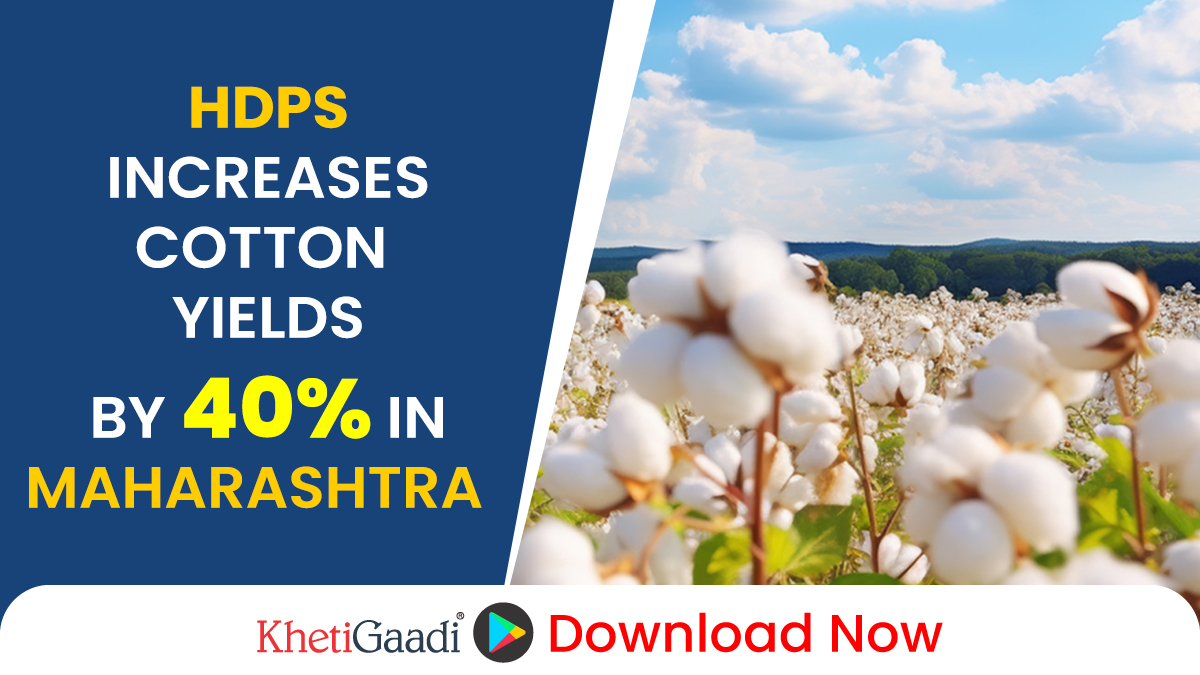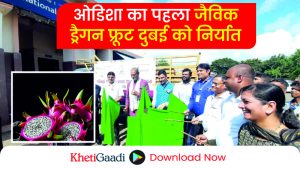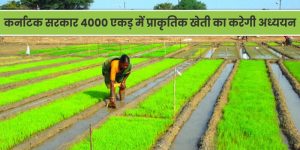In a strategic move to revitalize cotton production, farmers across Maharashtra are embracing the High-Density Planting System (HDPS), an advanced agricultural approach that promises to increase yields, tackle labour shortages, and stabilize the domestic textile industry. Through HDPS, farmers are set to achieve a projected increase of 30-40% in cotton productivity per acre, a welcome change for an industry struggling with supply challenges since the pandemic.
KhetiGaadi always provides right tractor information
Despite being the world’s largest cotton producer, India ranks only 44th in terms of productivity. Maharashtra, a major cotton-growing region, mirrors this challenge, contributing significantly to India’s cotton acreage but facing historically low yields. The adoption of HDPS is positioned to change this scenario, offering hope for improved productivity through mechanized processes and optimized plant density.
Rasi Seeds Leads Transformation with Rasi Max Project
A key player in Maharashtra’s HDPS adoption is Rasi Seeds, a seed development company at the forefront of agricultural innovation. Through its ‘Rasi Max Project,’ in partnership with ICAR-CICR, Krishi Vigyan Kendra (KVK) scientists, and local farmers, Rasi Seeds has introduced hybrid seeds designed specifically for HDPS. This initiative empowers farmers to increase their plant population density—growing up to 26,000 plants per acre compared to traditional methods, which typically allow for far fewer.
If you wish to know organic methods to increase your overall cultivation yield, please call KhetiGaadi counsellor on 07875114466 or write an email to connect@khetigaadi.com
Sathyanarayana Rao H G, Head of Marketing for Cotton at Rasi Seeds, explains the project’s broader impact: “Through the HDPS Project, farmers receive specialized training in customized agronomy and advanced pest and nutrient management practices. Our collaboration with machinery firms, crop protection companies, and textile industry stakeholders is building a supportive ecosystem. By doing so, we aim not only to increase productivity for individual farmers but also to strengthen the agricultural community.”
The project involves partnerships with external stakeholders for crucial machinery like pneumatic planters and cotton pickers, as well as defoliation agents and plant growth regulators, which streamline the process from planting to harvest. This holistic approach is enabling farmers to optimize resource use, reduce labour dependence, and ensure a more profitable harvest.
Farmer Testimonials Reflect HDPS Success
Farmers across Maharashtra are already witnessing the transformative impact of HDPS on their productivity and profitability.
Dilip Thakare, a cotton farmer from Malwada village in Akola district, shared his experience: “With HDPS and the Rasi Swift and RCH 929 hybrids, I’ve seen significant improvements in my yield. The method has made planting more efficient and reduced my dependence on manual labour during the harvest season.”
Similarly, Anil Tekade from Morgaon Sadijan in Akola district voiced his satisfaction: “The Rasi Max Project has changed the way we approach cotton farming. By allowing me to grow more plants in the same area, HDPS has streamlined the entire process.”
Kishor Kukade, another farmer from Agar village in Akola, highlighted the financial benefits: “The improvements I’ve noticed since adopting HDPS are remarkable. I no longer worry about labour costs during harvesting, thanks to mechanisation. This is definitely the future for cotton farming.”
HDPS as a Catalyst for Sustainable Cotton Growth Nationwide
The success of HDPS in Maharashtra aligns with a larger national vision to boost cotton productivity and secure India’s standing in the global textile market. Currently, HDPS is practiced over 22,000 acres in Maharashtra, with nearly 2,000 farmers actively involved. The system employs advanced tools like pneumatic planters for precise sowing, boom sprayers for effective chemical application, fertilizer spreaders, and mechanical cotton pickers, all of which contribute to higher productivity and a more secure fibre supply.
For a country where millions of livelihoods depend on the cotton sector, the adoption of HDPS is more than just a productivity boost; it’s a potential game-changer. The initiative ensures resilience for India’s cotton industry, paving the way for a future where both the farmers and the economy benefit from sustainable and scalable agricultural practices.
As HDPS gains traction, Maharashtra’s progress may soon serve as a model for other cotton-producing states. By embracing this innovation, Indian cotton farmers are not only enhancing yields but also establishing the foundation for a stronger, more reliable textile industry, making the country’s cotton sector robust and future-ready.
Stay tuned with us on our WhatsApp channel for more real time updates on various agriculture related schemes and innovative cultivation methods aimed at supporting our hardworking farmers.
For more detailed information, visit https://khetigaadi.com/ regularly!
To know more about tractor price contact to our executive






